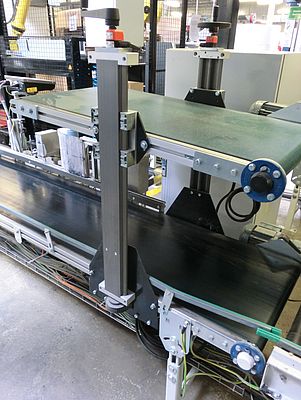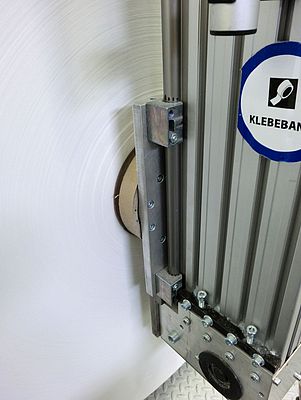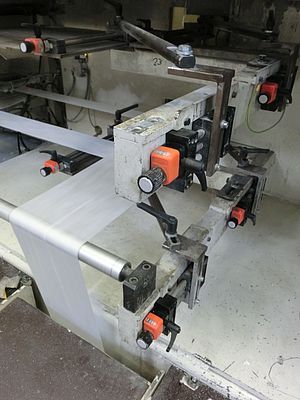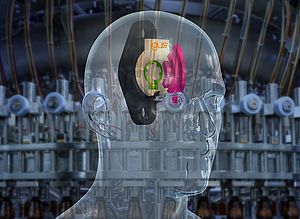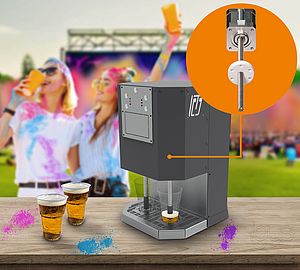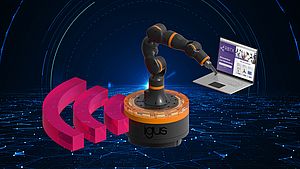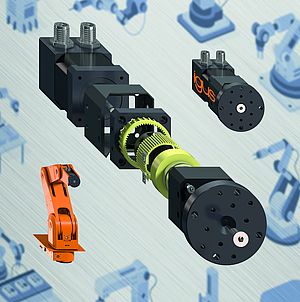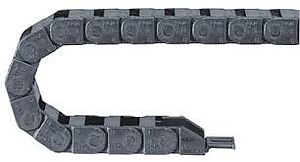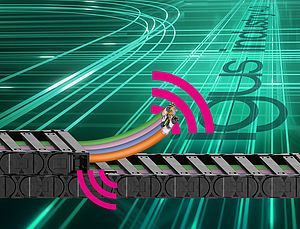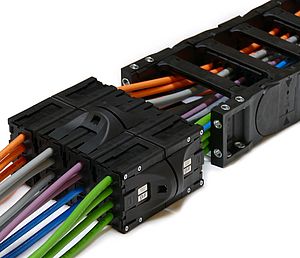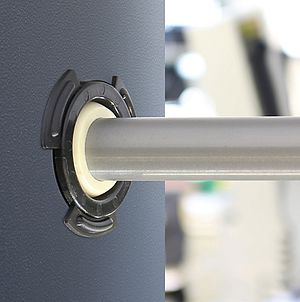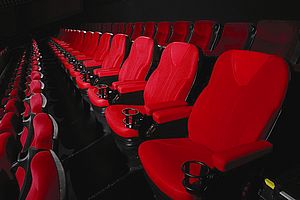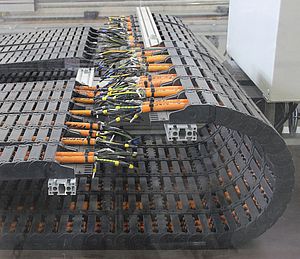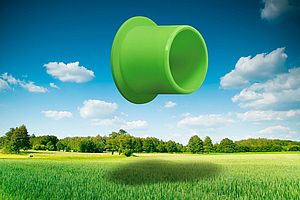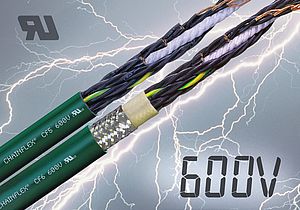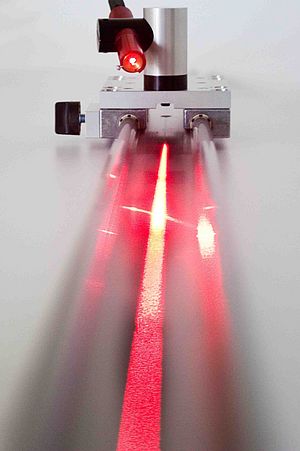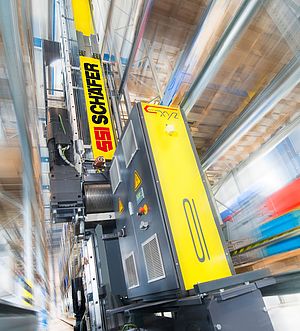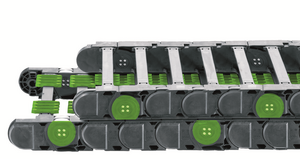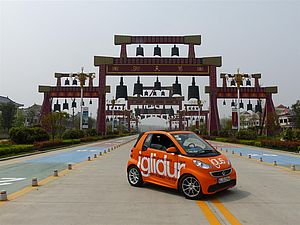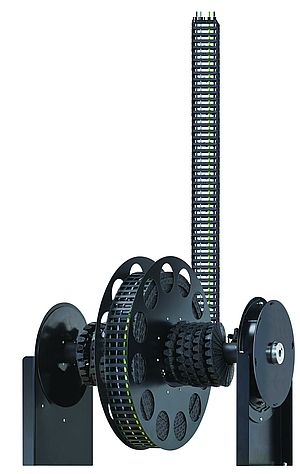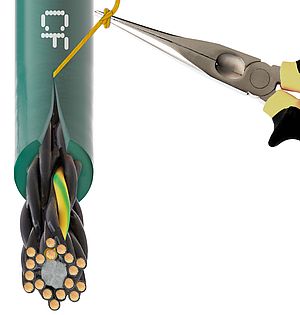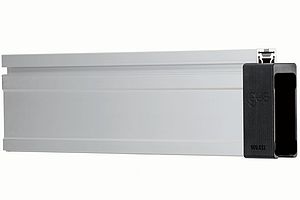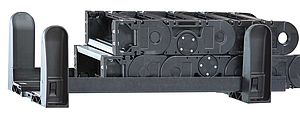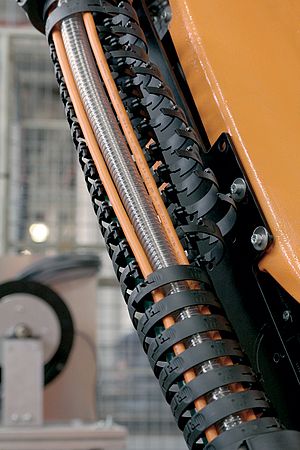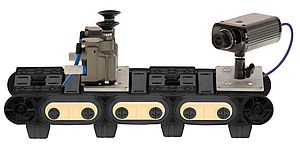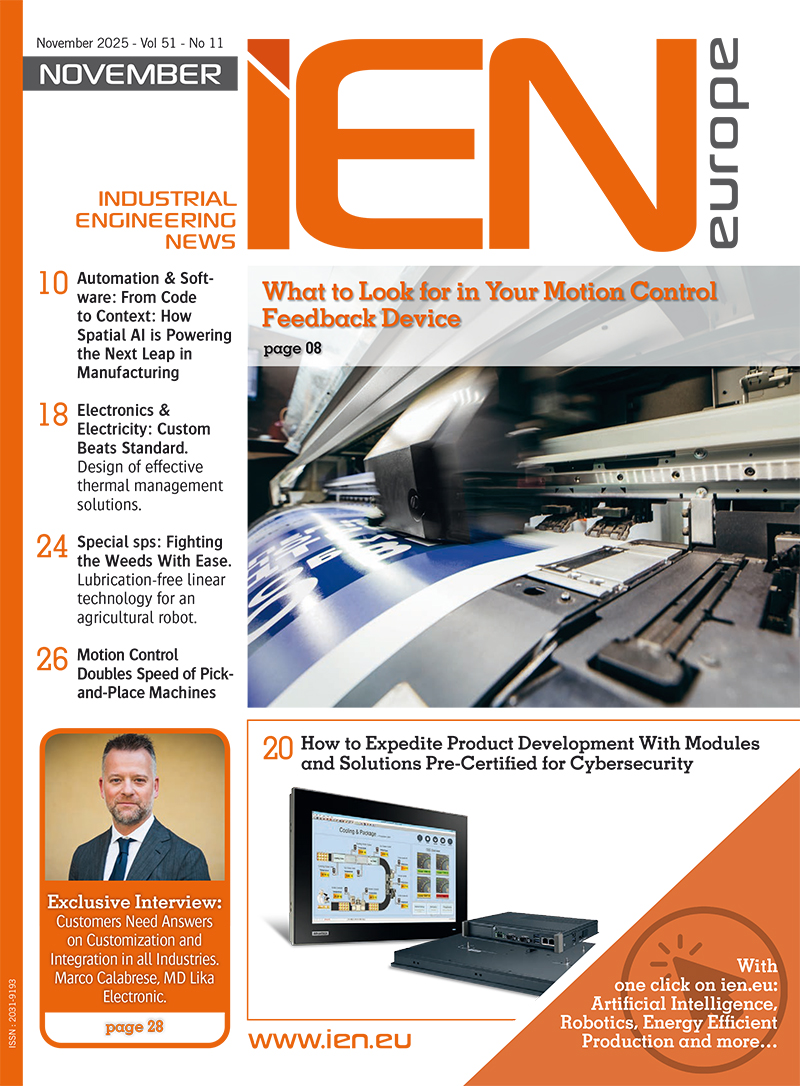The output of highly complex nappy production lines at Ontex Mayen has tripled over the past few years without any investment in new machines. This has been made possible by ensuring that the production line runs with virtually no downtime, as well as to continual improvements made on the production process. In addition, set-up times have been reduced significantly. The necessary flexibility when changing to different formats is guaranteed by various linear bearings from igus, which fulfil all manufacturing requirements. The drylin bearings are designed to operate in rough and dirty conditions, working 24 hours a day, 365 days per year.
Ontex Mayen is the European leading manufacturer of hygienic disposable products in the private label sector, offering a wide range of products for baby, feminine and adult hygiene. At one of its plants, 11 lines exclusively manufacture all sizes and variations of babies' nappies which are sold worldwide. Each nappy production line is approximately 60 m long and produces and packs approximately 1,000 nappies per minute, that's around 17 nappies per second. The throughput time for one nappy is about two seconds and between six and eight million nappies leave the factory every day.
Nappies differ depending on customer requirements and various raw materials, percentages or compositions are used. Some customers want their nappies to be perfectly white, while others want a colourful product. "However, the requirements are always the same, nappies always have to be easy to change, leak proof and gentle to babies' bottoms!" says, Thomas Heege, Head of Industrial Engineering at Ontex Mayen.
As the nappy manufacturer serves many customers, line safety and flexibility must be guaranteed for production and packaging, and every order or size changeover results in set-up times or adjustments. "We have an average of four changes in size per week per line, which adds up to more than 200 changes in size per year. In addition, we have three product changes, which makes at least 30 a day," says Thomas, detailing further challenges. But the requirement profile goes even further. "Our lines run round the clock seven days a week. In other words, they are used almost 365 days a year without interruption." On account of the high process speed of up to 600 m/min the lines are also subject to high dynamic loads.
Super-absorber and cellulose are used in the manufacturing process, which result in a relatively high level of dirt and dust. In addition, super-absorber behaves in a similar way to sand and contamination occurs through the effects of friction. "As a result, the lines and the machine components are under extreme strain," Thomas Heege continues. "However, they still have to work reliably under all circumstances."
drylin linear bearings from igus play a major role here. Lubricant- and maintenance-free, insensitive to dust and dirt, corrosion-free, durable, quiet and lightweight, they are mainly responsible for positive adjustments such as in the adhesive application points. The adhesive application head must be moved reproducibly from A to B to C according to the respective product, a process which works reliably using linear guides. These drylin linear systems also prove their performance ability in packaging, in optical control and in quality assurance.
Primarily, different leadscrew linear units or tables are used in a wide range of design sizes. They are often connected with leadscrew clamps to prevent unintentional twisting, position indicators for safe position setting and a handwheel for manual adjustment. Right- and left-hand threaded trapezoidal nuts are also used.
"We are particularly pleased that our special requirements can be met," continues Thomas. "For example, we have combined a left- and a right-hand thread on one threaded leadscrew so that we can adjust two positions at the same time around a virtual centre point." The igus sales consultant responsible, Markus Schwarz, adds, "This is an opposed linear movement. This special customer solution was created for this specific application, but there is no minimum order for this system."
There are special format setting lists for every size or product changeover. When a line is retooled, the staff responsible are informed of the respective parameters. Once set-up has been completed, it is 100 per cent correct. No readjustments have to be made and production can begin reliably.
In addition, the igus Easy Tube system is used on the lines. This is a compact linear unit for light adjustment tasks with a simple, effective and robust set up; a complete system is built using only a few components. The outer anodised aluminium tube guides the carriage while protecting the trapezoidal threaded leadscrew and nut from external contamination. The slides, torque compensator and trapezoidal threaded nut are made from a high-performance polymer which is lubricant-free combined with a low friction value and very good wear properties.
Along with other components from the drylin W modular system, RJUM linear plain bearings of different design sizes substitute ball bearing guides in a range of different components. They are based on highly wear-resistant polymers specially developed for linear technology, are particularly tough, economical and are available ex stock within 24 hours.
Other special equipment for the nappy manufacturers includes a material handling crane which brings the heavy rolls of raw material to the machine. These overhead cranes are 2 m high and move over large distances. Hybrid bearings modified from the drylin W range, which offer a combination of sliding and rolling have also proved themselves in this environment. "We mainly use these bearings for ergonomic reasons," Thomas Heege explains. "As friction values are minimised, adjustment and drive force are kept to a minimum and material feeding can easily be done by one operator without physical effort."
As babies' nappies must be white, the hygiene guidelines at the company are very stringent and concern the components and machine parts used in production and packaging. "Since we are classified as a food processing company, lubricants must be banned to a major extent," Thomas Heege explains. The igus lubricant-free linear solutions guarantee the complete exclusion of contamination of the nappies during the whole process.
A team of seven engineers continually work on improving the nappy production lines, to increase productivity and output even further. As well as many standard solutions, the company is increasingly relying on bespoke developments by igus. "Service lives have increased continually over the past few years. We have adapted the lines to the steadily increasing requirements without any high investments being necessary. The maintenance- and lubricant-free linear products are one major reason why we have been able to achieve this flexibility," Thomas Heege concludes. "Then there is the versatile modular system, the extremely quick delivery times and the straightforward sample service. All in all, an ideal way to turn ideas into solutions quickly!"



